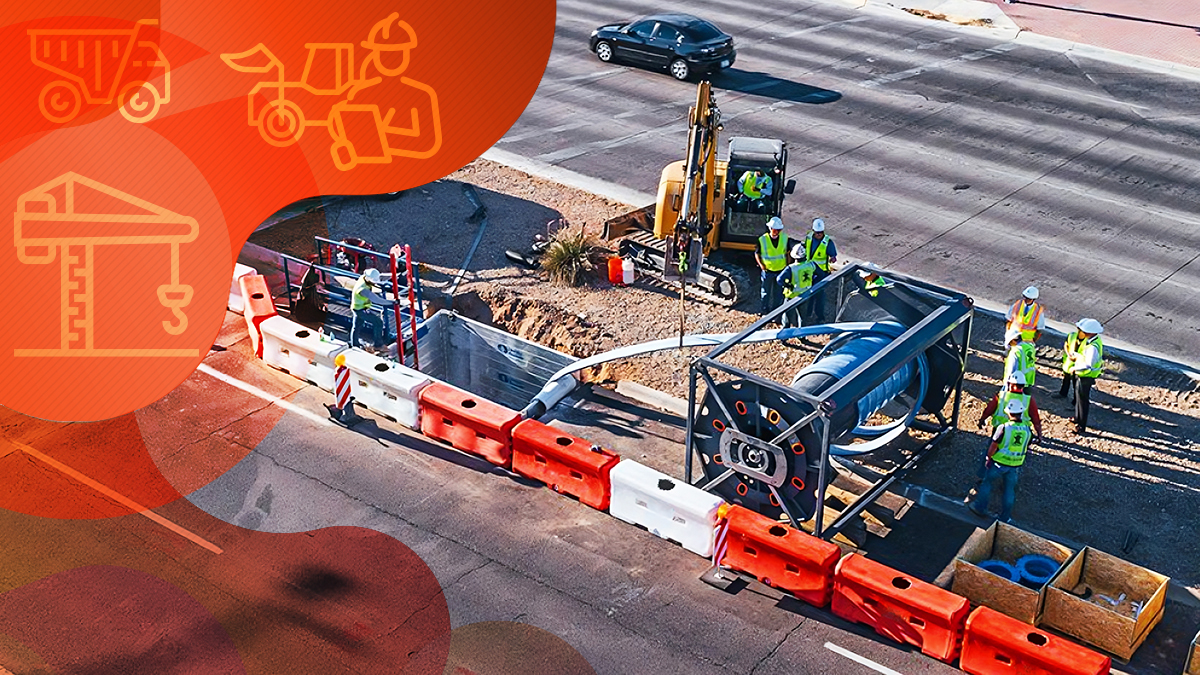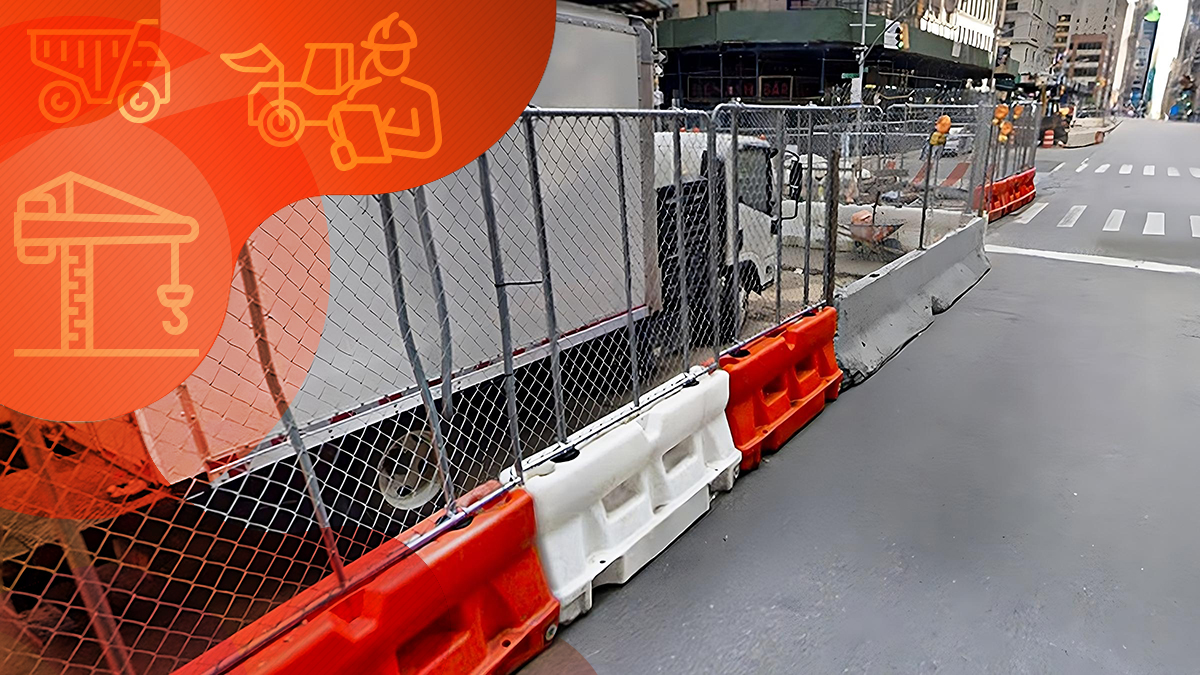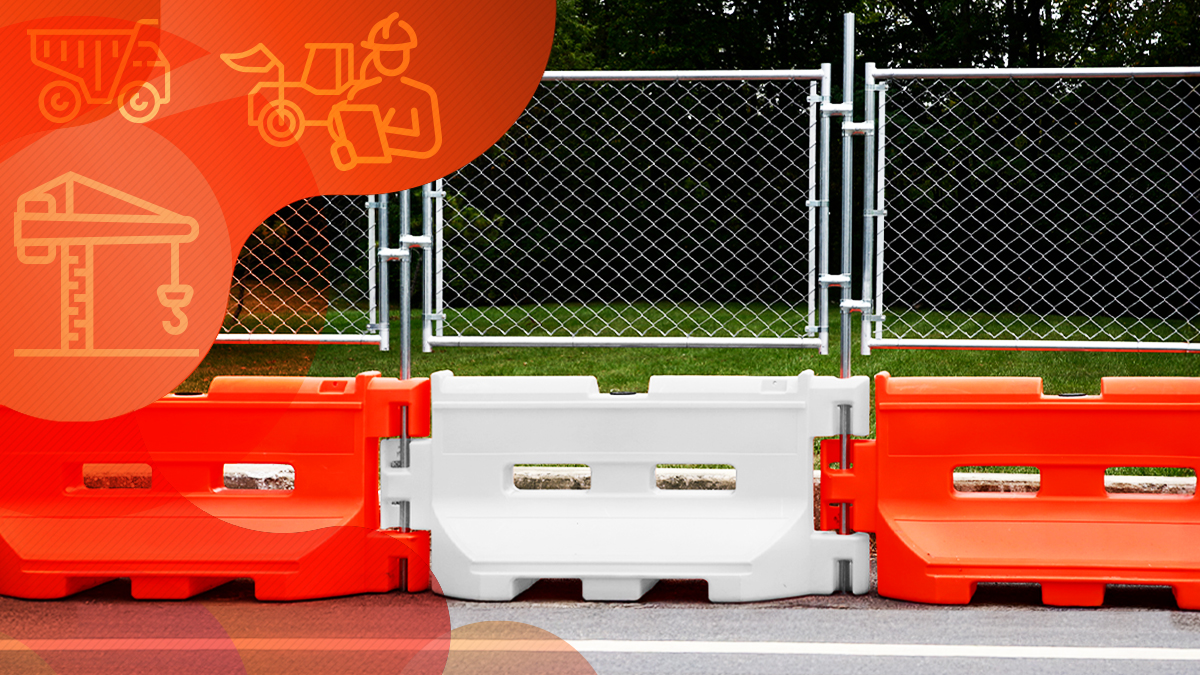Supply Chain Management for Construction Companies
Explore key strategies and insights for navigating the complexities of construction supply chain management.

When contractors talk about construction supply chain management, they're talking about managing the steps required to get materials from suppliers to active construction sites. The supply chain affects virtually all industries, but the supply chain in construction is especially sensitive to disruption.
Every construction project relies on a variety of supplies and tools. When materials arrive out of order or in smaller quantities than needed, the entire job is delayed.
There are many things that contractors can do to manage construction supply chain challenges. Well-managed supply chains contribute to construction project success by ensuring timely delivery, cost control, and resource availability.
If you're a contractor, it's very important for you to streamline the supply chain by staying organized, anticipating delays, and mitigating risks. Proper supply chain management is a key function that can help your business remain profitable.
Understanding the Construction Supply Chain
The construction supply chain involves stakeholders of all types, from manufacturers to subcontractors. Each group is distinct but also connected, as what affects one group in the supply chain often affects others as well.
Key Stakeholders
Manufacturers
Manufacturers rely on a combination of natural resources, equipment suppliers, and parts suppliers to produce their product. Sudden increases in demand or shortages of supplies required to meet demand can cause fluctuations in manufacturer output.
Suppliers
Suppliers play an important role in the supply chain. Suppliers sell products to manufacturers and to contractors. Most of the time, suppliers are able to provide reliable product delivery times.
During times of material shortages, suppliers compete with one another to acquire materials. When this happens, suppliers may experience product delays and may limit the number of supplies distributed to a single customer.
Logistics Providers
Logistics providers are the transportation companies that deliver materials and supplies throughout the supply chain. Trucks deliver materials to suppliers and sometimes straight to construction job sites. The trucking industry has experienced growth in the last several decades, especially with the booming popularity of e-commerce and overnight delivery. Ongoing truck driver shortages can impact delivery times.


Contractors
Contractors order materials, tools, and equipment to be delivered to the jobsite. Ordering materials quickly once a contract is in place can help ensure timely delivery of materials, but materials that arrive before they're needed can create their own problems.
Finding storage for materials that are not currently in use can take contractor time and energy that would otherwise be spent elsewhere. Knowing how much to order and when to order for timely delivery is an art.
Subcontractors
Subcontractors play a big role in many construction projects. Subcontractors work in specialty trades like electrical, plumbing, framing, and others. General contractors may order supplies, but often subcontractors are performing the work.
GCs must maintain close communication with subcontractors to ensure that the proper materials are ready and available when the subcontractor is on site.
Supply Chain Stages
In addition to all the stakeholders, there are also many stages of the construction supply chain.
Planning
During the planning phase, the contractor and other members of the team draw up plans for the coming project. These professionals may work together to determine how much and what type of materials to order. As plans come together, the list of raw materials needed can get very specific: down to the brand, model, color, and more.
If the contractor is still in the bidding phase, they will add up the needed materials, submit a bid to the consumer and, if the bid is accepted, the materials are ordered. The construction estimator plays an important role in this part of the process.
Sourcing
Once the bid is accepted, the contractor must source the materials from various suppliers. Often, contractors have ongoing relationships with specific suppliers. Having good relationships with suppliers can help ensure good service, prompt ordering, and predictable delivery.
Manufacturing
Once the materials are sourced and the job is ready to begin, the production and manufacturing of the project begins. Sometimes manufacturing happens offsite, and the product is delivered to be installed once it has been built. In other cases, the product is built on-site.
Different types of materials are needed at different times throughout the construction process. For example, when building a home, framing materials are delivered much earlier in the process than finishing materials. Timing is everything during the manufacturing process.
Materials that arrive too early can take up space and risk being damaged or stolen, while materials that arrive too late can delay progress.


Product delivery
Once the manufacturing process is finished, it's time to deliver the product to the consumer.
Whether the project was built onsite or constructed offsite and then installed in one large piece, the delivery process usually involves a walk-through with the consumer to identify parts of the project that still need finishing. Materials may be needed to resolve issues identified by the consumer.
Challenges in the Construction Supply Chain
The construction supply chain is sensitive to many problems that can occur during the construction process. Below are just a few examples of the types of challenges that contractors experience throughout the construction process.
Material and Resource Availability
Material supply shortages and supply chain disruptions can lead to delays in material delivery. Strikes at ports can cause a material shortage with suppliers, leading to problems sourcing materials of the exact desired type.
Sometimes this means that projects must wait months before they can begin. Other times, consumers must choose from alternative materials to keep their project moving.
Fluctuating Costs
Fluctuating costs can be a big problem for a contractor that has placed a bid with narrow margins. Many beginning contractors operate on slim margins to make their bids more competitive. When prices rise sharply - as has happened for materials like lumber - this can force contractors to make tough decisions.
Low bids can mean taking a loss or raising the price of the bid after the consumer has already agreed on a price. This can cause delays and arguments between the consumer and the contractor, adding further complexity to an already complex process.
Coordination and Communication
Poor communication between stakeholders can also create supply chain problems. If the material supplier, for example, sees a sharp increase in demand for a specific product, contractors can experience unanticipated delays ordering products that are ordinarily easy to procure. Good communication can help prevent these problems by enabling contractors and other team members to plan.
Regulatory and Compliance Issues
Sometimes, regulatory factors can complicate construction supply chains. This is especially true on large government projects, where contractors may be required to purchase materials from unfamiliar suppliers.
Strategies for Managing the Construction Supply Chain
There are many things that contractors can do to mitigate problems and manage risk in the supply chain.
Inventory and Resource Tracking
Contractors maintain inventory and often store that inventory in multiple places. Tracking inventory levels -- including material location, size, number, model, color, and more -- can help contractors avoid over- or under-ordering for specific projects. Inventory and resource tracking software make tracking materials easier.
Building Strong Vendor Relationships
Relationships with suppliers and logistics companies can play a big role in ensuring on-time deliveries. Contractors that cultivate reliable partnerships are more likely to enjoy consistency, quality, and on-time delivery schedules. There are many things contractors can do to build strong vendor relationships, including:
- Show loyalty to good suppliers.
- Pay bills on time.
- Maintain open, professional lines of communication.
Leveraging Digital Solutions
In addition to apps that track inventory, there are many digital tools that are designed to help contractors improve supply chain efficiency. Software can help with bidding and estimating, material sourcing, real-time tracking of materials and other functions of procurement systems.
Full supply chain management software is available for contractors who run big operations and need help with complex supply chain management.


Proactive Risk Management
Risks are everywhere in the supply chain. Prices can change -- sometimes very quickly -- and conditions that cause delays can develop overnight. Putting proactive risk management strategies into place can help maintain project momentum. Some basic examples of things contractors can do to manage these risks:
- Get training: Take classes in bidding, estimating, and construction logistics.
- Put an end-date on bids: Place expiration dates on bids that require consumers to either make a decision or request a new bid if they do not make a timely decision.
- Stay informed: Watch for signs of disruption in the supply chain, such as strikes, increases in demand, natural disasters, economic downturns or booms, and others.
- Stay organized: Don't delay placing orders for materials, especially for materials that require long lead times.
- Communicate: Set consumer pricing expectations through well-written contracts that accommodate price fluctuations. Use the allowances list to show consumers that the cost of the materials they choose impacts the amount they will ultimately pay.
- Buy local: Use local manufacturers and material suppliers to cut extra links from the supply chain. Locally-sourced materials can be easier and faster to acquire than materials that must travel half the globe to arrive.
- Manage your materials: Manage materials on-site through proper inventory control and storage.
Hire a Construction Estimator
There's a strong relationship between supply chain management, procurement in construction, and construction estimating. Well-managed supply chains contribute to a more accurate budget, while simplifying resource allocation. This is why some contractors keep a construction estimator on staff to monitor and manage the estimating process.
Estimators are in charge of bidding, estimating, and maintaining relationships with suppliers. Developers, for example, may use a construction estimator to manage their supply inventory, ensure timely delivery of materials, and estimate the costs to make bidding more accurate.
Learn more about the role of estimators, how they make projections, and how they can contribute to avoid budget overruns, by checking out our blog on the main responsibilities of a construction estimator.
Trend now

Reducing Impact Damage with Water-Filled Plastic Jersey Barriers
Understanding the effects of barrier materials on vehicles and their occupants can help improve road safety.

Choosing Between Concrete or Plastic Jersey Barriers
Not all barriers are built the same. Here’s what to know before choosing between plastic and concrete.

Advantages of Water Barriers with Fence Toppers
Learn how a fence topper transforms water barriers into a more secure, private, and effective work site solution.

